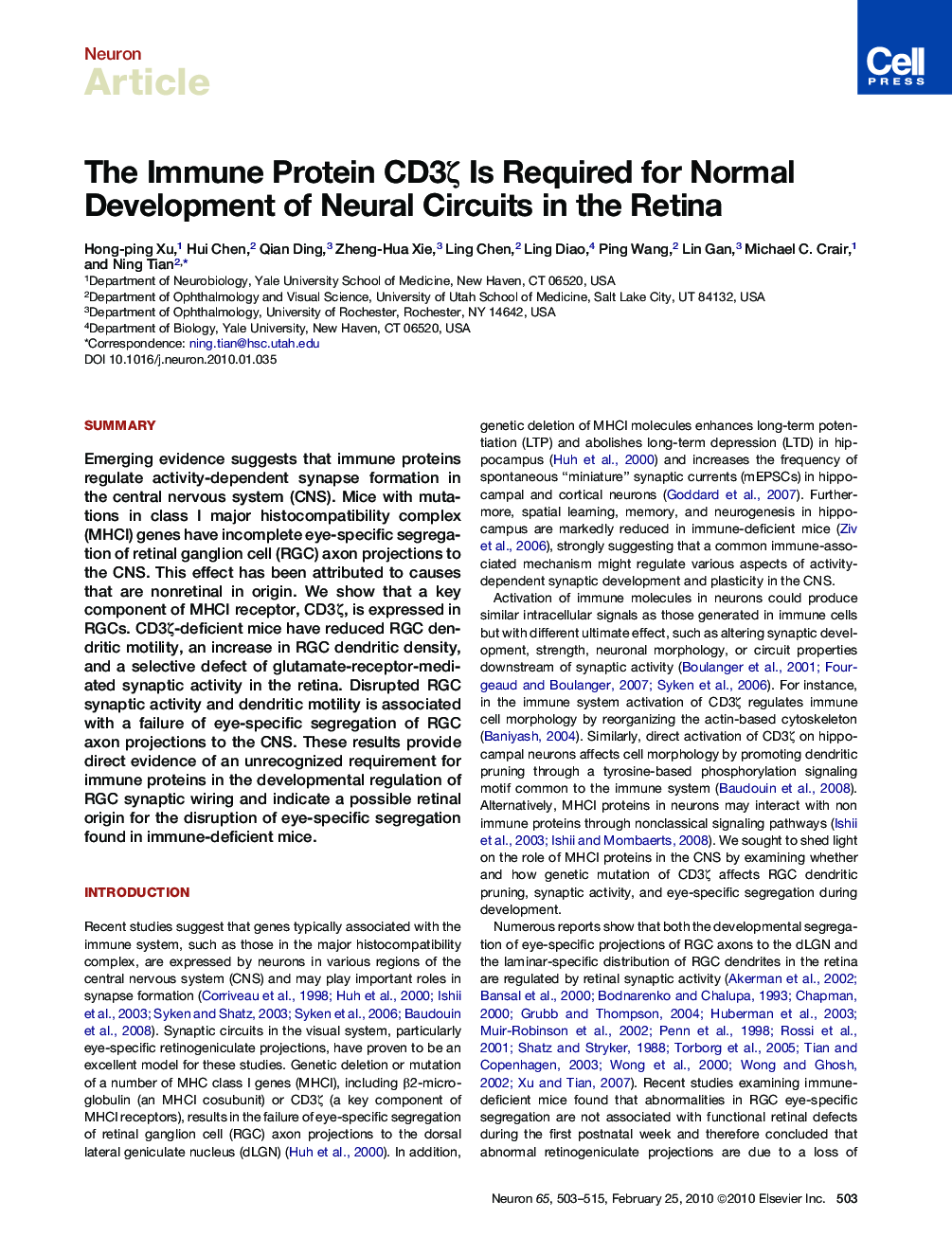| Article ID | Journal | Published Year | Pages | File Type |
|---|---|---|---|---|
| 4322652 | Neuron | 2010 | 13 Pages |
SummaryEmerging evidence suggests that immune proteins regulate activity-dependent synapse formation in the central nervous system (CNS). Mice with mutations in class I major histocompatibility complex (MHCI) genes have incomplete eye-specific segregation of retinal ganglion cell (RGC) axon projections to the CNS. This effect has been attributed to causes that are nonretinal in origin. We show that a key component of MHCI receptor, CD3ζ, is expressed in RGCs. CD3ζ-deficient mice have reduced RGC dendritic motility, an increase in RGC dendritic density, and a selective defect of glutamate-receptor-mediated synaptic activity in the retina. Disrupted RGC synaptic activity and dendritic motility is associated with a failure of eye-specific segregation of RGC axon projections to the CNS. These results provide direct evidence of an unrecognized requirement for immune proteins in the developmental regulation of RGC synaptic wiring and indicate a possible retinal origin for the disruption of eye-specific segregation found in immune-deficient mice.
► The immune protein CD3zeta is preferentially expressed by retinal ganglion cells ► Mutation of CD3zeta impairs developmental dendritic pruning of RGCs ► CD3zeta KO mice show selective defect in GluR-mediated retinal synaptic activity ► CD3zeta mutation impairs activity-dependent refinement of RGC axon projections in CNS
